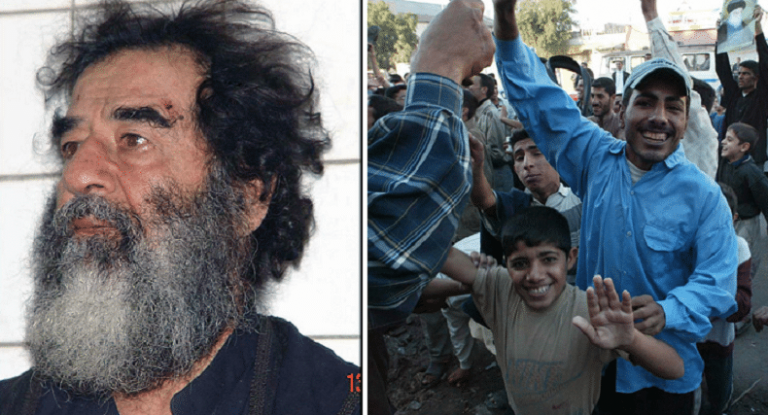
As the 30th anniversary of the end of the Gulf War approaches, much interesting historical detail and context can be found by reviewing official UK government documents that were only made public in the past few years.
For example, former British Prime Minister Margaret Thatcher compared Saddam Hussein to Nazi leader Adolf Hitler when Iraq invaded Kuwait. She also described him as a “selfish, despotic dictator” who engaged in “psychological warfare,” according to papers that were declassified and released in 2017.
Feb. 28 marks 30 years since the end of the Gulf War. It concluded when US-led coalition forces liberated Kuwait from the Iraqi dictator’s invasion and occupation that began in August the previous year.
One of Thatcher’s aides sent a memo to a Foreign Office colleague detailing a conversation between the prime minister and Douglas Hurd, who was the UK foreign secretary at the time.
The memo said: “Both the prime minister and the foreign secretary agreed that it now seemed highly likely that foreign nationals would be detained at key installations.
“Saddam Hussein was behaving like Hitler and using psychological warfare. His aim might well be to provoke hostile action. The prime minister stressed the importance of the UK studying his psychological warfare tactics carefully and responding in a suitable way.”
The note also said Thatcher and Hurd, in reference to the eight-year Iran-Iraq War in the 1980s during which hundreds of thousands of people died, described Saddam as “a selfish, despotic dictator.”
Iraq invaded small, but oil-rich, neighbor Kuwait in 1990, two years after the conclusion of the economically devastating Iran-Iraq War. Not only did the invasion provide a much-needed financial boost to Iraq’s oil supplies, it also posed a serious and imminent military threat to Saudi Arabia and its smaller Gulf neighbors.
The invasion and occupation of Kuwait prompted a response by a 35-state military coalition, led by the US, UK, and Saudi Arabia, that quickly forced Saddam’s forces to withdraw.
The end of the Gulf War heralded an era of economic hardship, sanctions and diplomatic isolation for Iraq, which only ended with his overthrow during the US-led invasion of the country in 2003.
___
(c) 2021 the Arab News
Distributed by Tribune Content Agency, LLC.
0 comments :
Post a Comment